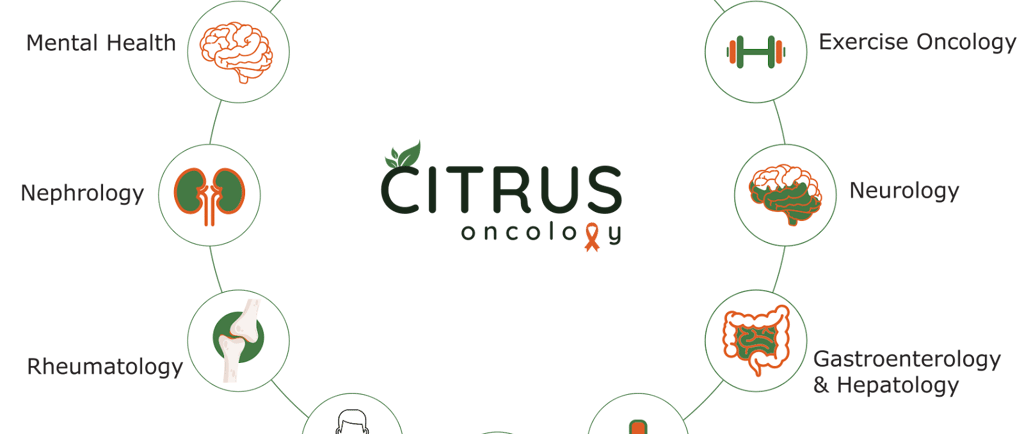Why a Multispecialty Approach is Crucial in Cancer Supportive Care
Cancer treatment is a complex journey that extends far beyond targeting tumor cells. As medical professionals and patients alike are discovering, a multispecialty approach to cancer supportive care isn't just beneficial—it's essential.
BLOG
Dr. Aabid Shariff, PhD
7/4/20242 min read


Here's why:
1. Addressing Complex Side Effects
Modern cancer treatments, while increasingly effective, can trigger a wide range of side effects affecting multiple organ systems. From diabetes and neuropathy to skin rashes, heart disease, and kidney problems, these side effects require expertise from various medical specialties. A multispecialty approach ensures that each issue is addressed by the most qualified professional.
2. Providing Holistic Patient Care
Cancer impacts the whole person, not just the site of the tumor. By bringing together experts from different fields, we can ensure that all aspects of a patient's health are addressed, significantly improving their overall quality of life during and after treatment.
3. Managing Pre-existing Conditions
Many cancer patients have pre-existing health conditions that can worsen during treatment. Having specialists in these areas readily available helps manage these conditions alongside cancer treatment, preventing complications and ensuring comprehensive care.
4. Enabling Timely Interventions
With specialists on hand, side effects can be addressed quickly and efficiently. This rapid response can prevent treatment delays and complications, a crucial factor when you consider that the current average wait time to see a specialist is a staggering 89 days—an unacceptable delay for cancer patients.
5. Supporting Oncologists
A multispecialty team provides invaluable support to oncologists. While oncologists focus on cancer treatment, other specialists can manage side effects and complications, ensuring a more comprehensive and efficient care plan.
6. Improving Treatment Outcomes
Effective management of side effects and pre-existing conditions increases the likelihood of patients completing their cancer treatments as planned. This adherence to treatment schedules can potentially lead to improved outcomes.
7. Enhancing Care Coordination
A multispecialty approach naturally leads to better coordination of care. With multiple specialists working together, the risk of conflicting treatments or medications is significantly reduced.
8. Empowering Patients
Access to multiple specialists empowers patients to take an active role in managing all aspects of their health during cancer treatment. This engagement can lead to better informed decisions and improved patient satisfaction.
9. Advancing Quality of Care through Research and Analytics
By bringing together experts from various fields, a multispecialty approach can contribute to a better understanding of cancer treatment side effects. This collaborative environment can lead to improved supportive care strategies and advancements in cancer care overall.
10. Providing Cost-Effective Care
While it might seem counterintuitive, a multispecialty approach can actually be more cost-effective in the long run. By addressing side effects promptly and effectively, this approach may reduce hospitalizations and other costly interventions.
By Aabid Shariff, PhD
Co-founder and CEO, Citrus Oncology

Call for Appointment
+1 (786) 505-8988
info@citrusoncology.com
Refer your patients:
Fax: +1 (888) 303-9123
